第56章 X (2)
The daguerreotypist had found these beans in a garret, over one of the seven gables, treasured up in an old chest of drawers by some horticultural Pyncheon of days gone by, who doubtless meant to sow them the next summer, but was himself first sown in Death's garden-ground. By way of testing whether there were still a living germ in such ancient seeds, Holgrave had planted some of them; and the result of his experiment was a splendid row of bean-vines, clambering, early, to the full height of the poles, and arraying them, from top to bottom, in a spiral profusion of red blossoms. And, ever since the unfolding of the first bud, a multitude of humming-birds had been attracted thither. At times, it seemed as if for every one of the hundred blossoms there was one of these tiniest fowls of the air,--a thumb's bigness of burnished plumage, hovering and vibrating about the bean-poles. It was with indescribable interest, and even more than childish delight, that Clifford watched the humming-birds. He used to thrust his head softly out of the arbor to see them the better; all the while, too, motioning Phoebe to be quiet, and snatching glimpses of the smile upon her face, so as to heap his enjoyment up the higher with her sympathy.
He had not merely grown young;--he was a child again.
Hepzibah, whenever she happened to witness one of these fits of miniature enthusiasm, would shake her head, with a strange mingling of the mother and sister, and of pleasure and sadness, in her aspect. She said that it had always been thus with Clifford when the humming-birds came,--always, from his babyhood,--and that his delight in them had been one of the earliest tokens by which he showed his love for beautiful things. And it was a wonderful coincidence, the good lady thought, that the artist should have planted these scarlet-flowering beans--which the humming-birds sought far and wide, and which had not grown in the Pyncheon garden before for forty years--on the very summer of Clifford's return.
Then would the tears stand in poor Hepzibah's eyes, or overflow them with a too abundant gush, so that she was fain to betake herself into some corner, lest Clifford should espy her agitation.
Indeed, all the enjoyments of this period were provocative of tears. Coming so late as it did, it was a kind of Indian summer, with a mist in its balmiest sunshine, and decay and death in its gaudiest delight. The more Clifford seemed to taste the happiness of a child, the sadder was the difference to be recognized. With a mysterious and terrible Past, which had annihilated his memory, and a blank Future before him, he had only this visionary and impalpable Now, which, if you once look closely at it, is nothing.
He himself, as was perceptible by many symptoms, lay darkly behind his pleasure, and knew it to be a baby-play, which he was to toy and trifle with, instead of thoroughly believing. Clifford saw, it may be, in the mirror of his deeper consciousness, that he was an example and representative of that great class of people whom an inexplicable Providence is continually putting at cross-purposes with the world: breaking what seems its own promise in their nature; withholding their proper food, and setting poison before them for a banquet; and thus--when it might so easily, as one would think, have been adjusted otherwise--making their existence a strangeness, a solitude, and torment. All his life long, he had been learning how to be wretched, as one learns a foreign tongue; and now, with the lesson thoroughly by heart, he could with difficulty comprehend his little airy happiness. Frequently there was a dim shadow of doubt in his eyes. "Take my hand, Phoebe," he would say, "and pinch it hard with your little fingers! Give me a rose, that I may press its thorns, and prove myself awake by the sharp touch of pain!" Evidently, he desired this prick of a trifling anguish, in order to assure himself, by that quality which he best knew to be real, that the garden, and the seven weather-beaten gables, and Hepzibah's scowl, and Phoebe's smile, were real likewise. Without this signet in his flesh, he could have attributed no more substance to them than to the empty confusion of imaginary scenes with which he had fed his spirit, until even that poor sustenance was exhausted.
The author needs great faith in his reader's sympathy; else he must hesitate to give details so minute, and incidents apparently so trifling, as are essential to make up the idea of this garden-life. It was the Eden of a thunder-smitten Adam, who had fled for refuge thither out of the same dreary and perilous wilderness into which the original Adam was expelled.